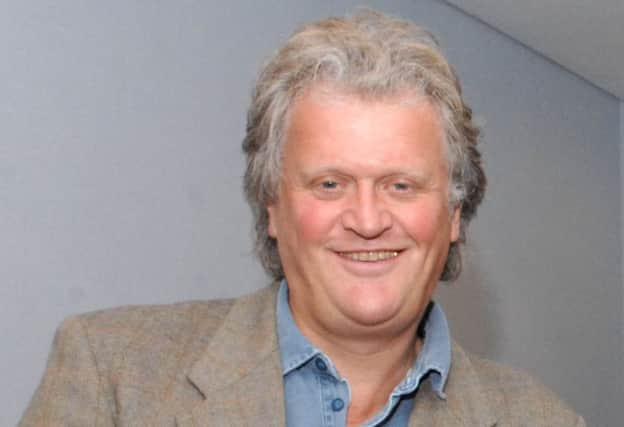Wetherspoon boss claims living wage threatens closures


Wetherspoon chairman Tim Martin blasted the initiative by George Osborne in his summer Budget as a political stunt that would intensify the squeeze on the industry that has seen some 10,000 outlets close since 2004.
He said the new living wage would particularly hit pubs in poorer areas because that was where the VAT differential between them and supermarkets selling cheaper, food-subsidised beer was already having the greatest impact.
Advertisement
Hide AdAdvertisement
Hide AdMartin, whose 900‑plus estate includes about 70 in Scotland from the Borders to the Highlands, claimed the new pay rules had been decided “by one or two politicians on a whim, for political reasons”.
The national living wage will see over‑25s paid a minimum of £7.20 an hour from April next year rising to £9 by 2020. “By pushing up the cost of wages by a large factor, the government is inevitably putting financial pressure on pubs, many of which have already closed,” Martin said.
“This financial pressure will be felt most strongly in areas which are less affluent, since the price differential in those areas between pubs and supermarkets is far more important to customers.
“It is certain that high streets in less affluent areas, which already suffer from serious problems of empty shops and dereliction, will suffer further if pubs and other labour-intensive businesses close.”
He added that staff costs were already 85p a pint on average for his pubs against 10p for supermarkets, and that Wetherspoon was “happy to pay its share of tax” – about 42 per cent of its sales at £632 million.
Unveiling a slump in Wetherspoon’s headline pre-tax profits to £58.7m in the year to 26 July from £78.4m, Martin also again urged the government for a level playing field with cut‑price supermarket alcohol.
“Supermarkets pay virtually no VAT in respect of food sales, whereas pubs pay 20 per cent – and this disparity enables supermarkets to subsidise their alcoholic drinks sales to the detriment of pubs and restaurants,” he said.
Profits at the group, whose pubs include the Alexander Graham Bell in Edinburgh and The Great Glen in Fort William, were dragged down by one-off items including a £11.2m writedown on the value of underperforming outlets.
Advertisement
Hide AdAdvertisement
Hide AdBut, excluding these, profits still fell 2 per cent to £77.8m, partly due to higher wage costs, it said. City analysts said that although the group’s same-floorspace sales rose 3.3 per cent in the year, profit margins were hit by the company’s slashing of breakfast and coffee prices earlier this year.
The group has said it wants to triple sales in this sub-category by autumn 2016. The group’s margin is now 7.4 per cent compared with 8.3 per cent in 2014 and 10.2 per cent in 2009.
Drinks sales in the year grew 1.2 per cent, with food up 7.3 per cent, and slot and fruit machine revenue down 2.8 per cent.
Paul Hickman, analyst at Edison Investment Research, said while Martin’s outburst elicited some sympathy “it is not calculated to generate [share] buying interest, as most investors will correctly reason that the tax ‘harmonisation’ that Martin calls for is about as likely as free beer”.